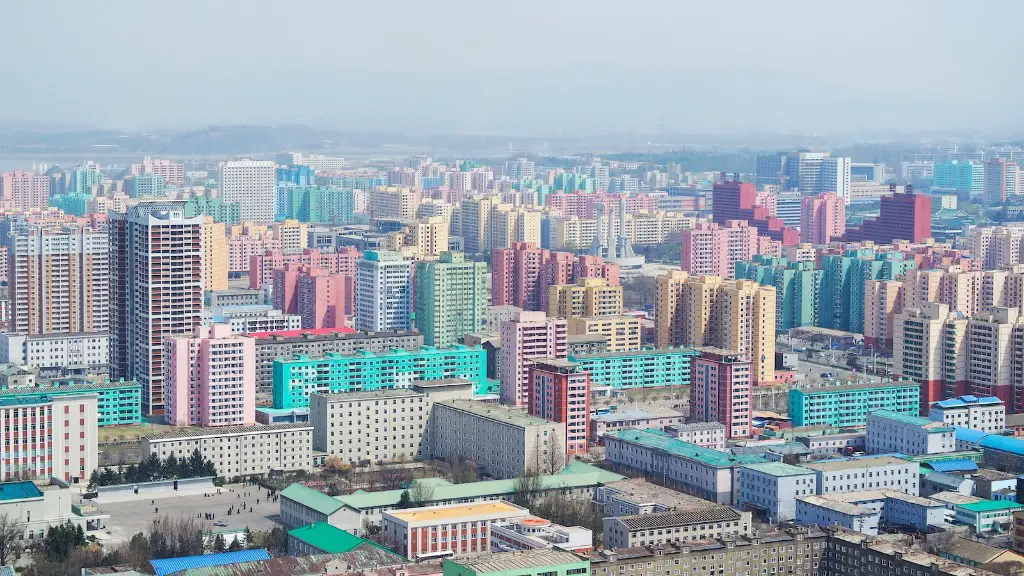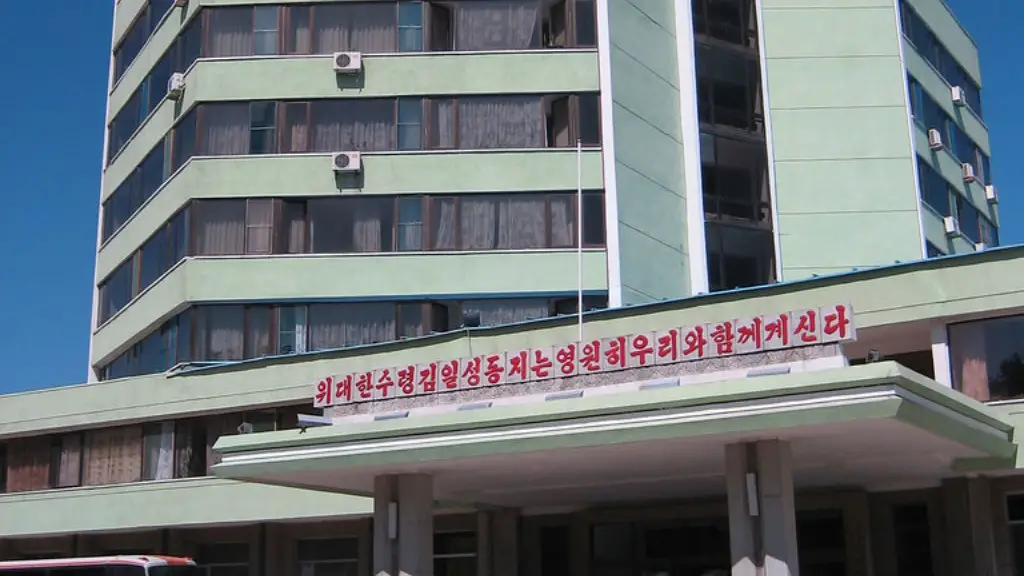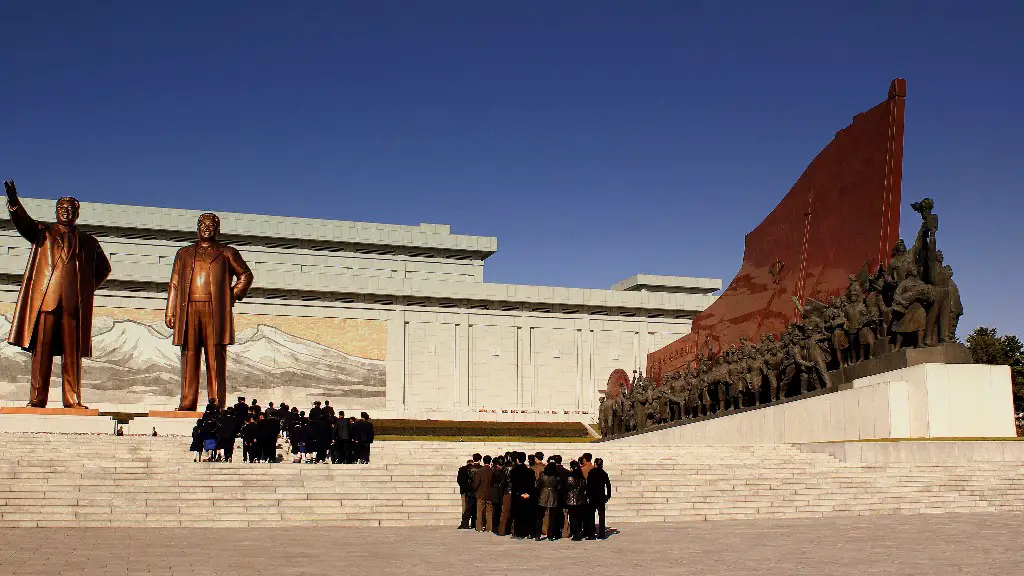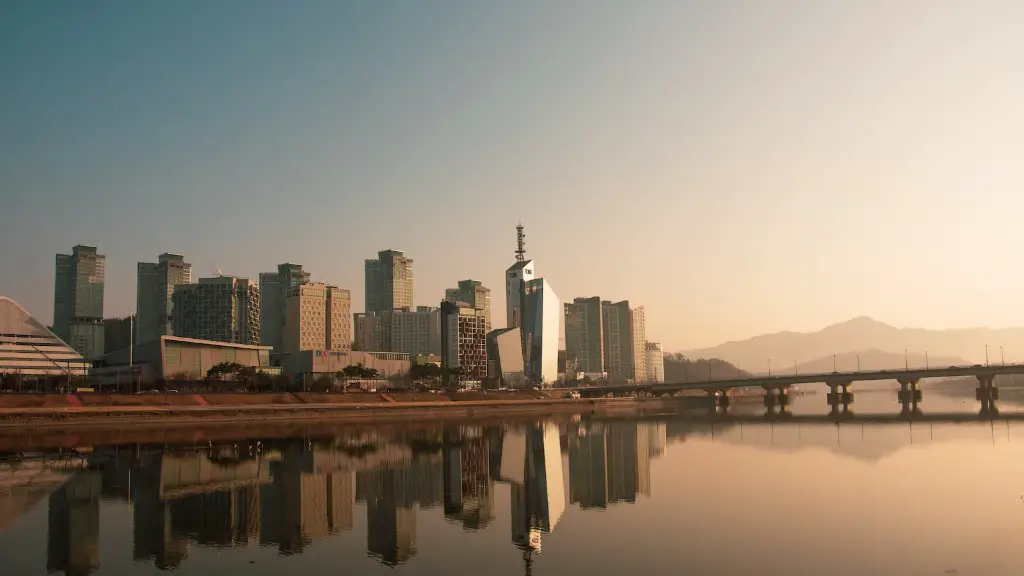North Korea’s Nuclear Program
North Korea has a long history of developing and using nuclear weapons. For decades, North Korea has been developing, stockpiling and testing a range of nuclear-capable missiles and warheads. In 2017, North Korea tested its most powerful ICBM to date, prompting a range of new sanctions and threats of military retaliation from the United Nations and other world powers.
Despite North Korea’s nuclear advancements, reliable information on their capabilities remain sparse. In addition to the level of sophistication of the nuclear weapons and delivery systems, little is known beyond the fact that North Korea possesses the capacity to launch a nuclear strike on a regional and potentially global scale.
In response to these developments, the U.N. and world leaders have sought to pressure North Korea into ceasing its nuclear program. Sanctions have been imposed, negotiations have been ongoing, and threats of military force have been issued. Despite these efforts, North Korea appears to have no intention of halting its pursuit of a fully-functional nuclear arsenal.
The Stakes of Non-Intervention
The prospect of a nuclear-armed North Korea poses a serious challenge to global security and stability. Although its nuclear program has yet to be fielded against an adversary, a nuclear North Korea is particularly concerning as it may feel emboldened to pursue more hostile and destabilizing activities in the Koreas, the rest of East Asian region and beyond.
The threat of North Korea is compounded by its unpredictable behavior and lack of diplomatic relations with other major powers. North Korean leader Kim Jong Un’s erratic foreign policy decisions have only further heightened the risks posed by the nuclear program.
Given these concerns, inaction on the part of the U.N. and other world powers would be irresponsible and could result in catastrophic consequences. The only question is: what is the best approach to address the North Korean nuclear program?
Potential Solutions
The potential solutions to the North Korean nuclear conundrum range from military action to economic sanctions to diplomatic engagement. On the military front, the U.S. has long been prepared to take preemptive or retaliatory action against North Korea if necessary. Such action risks sparking a destructive war, however, and is likely to only serve as a short-term stopgap measure.
More popular alternatives include economic sanctions and diplomatic engagement. Economic sanctions have already been used to varying degrees of success against North Korea, with U.N. sanctions crippling their economy in recent years. Moreover, talks aimed at deescalating tensions and securing a comprehensive agreement have been regularly held, though progress has been limited and talks have stuttered and stalled at points.
Recently, there have been signs of improved relations between the U.S. and North Korea, most notably with the historic summit in Singapore. The success of the summit, if it can be deemed as such, will likely hinge on whether or not North Korea is willing to forego its nuclear ambitions in return for economic and diplomatic incentives.
Risk of War
Whichever way you look at it, the North Korea crisis remains at a tipping point and the risk of war is still very much real. Any talk of military action remains far off and the international community must now not just focus on the short-term options, but on long-term strategies to address the situation, such as economic development and inter-Korean relations.
A major challenge that lies ahead is to build trust between the North Korean leadership and its peers, something that will likely take decades, rather than months or even years, to achieve. Until then, the U.N. and world powers must remain cautiously optimistic that the diplomatic standoffs and economic sanctions will eventually lead to a more lasting peace and stability in the Korean peninsula.
The Role of China
China has historically been a major player in the North Korea crisis, being a major source of material and diplomatic support to the country. While it has taken an increasingly active role in recent years, its efforts have yet to bear fruit. Recently, China has sought to roll back some trade restrictions, impose economic sanctions and attempt to re-engage North Korea in diplomatic talks. It remains unclear, however, how effective these measures will be in pressuring North Korea to abandon its nuclear ambitions.
At this stage, it seems that the only effective way to de-escalate the crisis is through a creative combination of diplomatic engagement and international pressure. China has an important role to play in this regard, but other major players such as South Korea and the U.S. cannot afford to be complacent either. The stakes are simply too high.
Conclusion of No Intervention
The North Korea crisis is an incredibly complex and multifaceted, and the path to resolve it remains hidden in the fog of war. The international community must continue to seek out a diplomatic solution, even if the chances of success are slim. War is not an option and the consequences of inaction would be devastating.
International Cooperation
Perhaps the best opportunity for progress lies in finding common ground and forging new alliances between countries in the region. South Korea’s president Moon Jae-in has been at the forefront of this effort, engaging in various summits with North Korean officials and advocating for increased communication between the two countries. Other nations, such as Japan and the U.S., must work together with South Korea to find the diplomatic solutions needed to mitigate the risks posed by North Korea’s nuclear program.
The Humanitarian Dimension
Amidst this complicated crisis, it is important to remember the human element—not just the political and diplomatic implications of the North Korea’s nuclear program, but the plight of the ordinary North Korean citizen. After years of economic mismanagement and international sanctions, North Korea has become one of the world’s poorest and most isolated countries, with poverty, malnutrition and a lack of access to basic healthcare the norm in many areas.
At the same time, North Korea’s leaders have been accused of unethical practices, including political purges, torture and human rights abuses. The situation remains dire and calls for urgent action.
Role of NGOs
Let us not forget the important role of civil society in helping to alleviate the suffering of the North Korean people. Over the years, non-governmental organizations (NGOs) have provided much-needed aid to North Koreans, including food, clothing and medical supplies. While the scope of their work remains limited due to the authoritarian nature of the country, their presence is critical if the situation is to improve.
At the same time, citizens of the region must continue to raise awareness of the plight of North Koreans and rally for peaceful solutions to the nuclear crisis. Only by working together can we hope to achieve a lasting peace and stability in the Korean peninsula.




